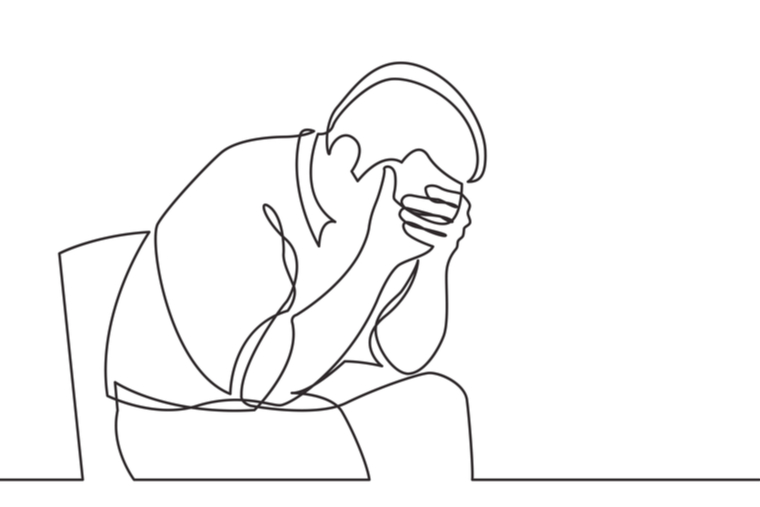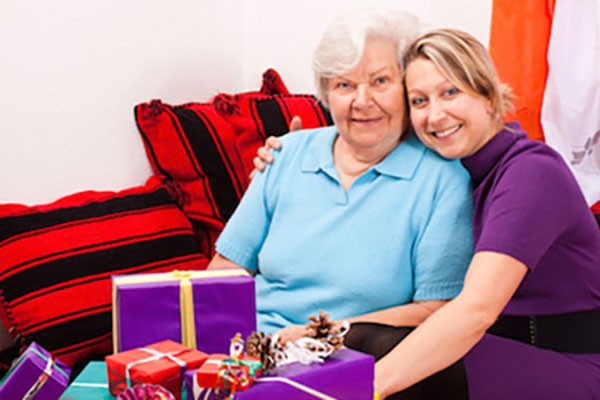Some 23,000 people across the globe — including more than 1,000 Americans — have died as a result of COVID-19 as of March 26.
Along with many aspects of life since the virus took hold, grieving also has become more complicated for the friends and families of those who died.
“There are two reasons,” said Brian Carpenter, a professor of psychological and brain sciences in Arts & Sciences at Washington University in St. Louis.

“First, the deaths are occurring within the context of a large public health crisis. A lot of attention is on the larger issue, and rightly so,” he said. “But this may make it more difficult for an individual to focus on a personal loss when so much feels urgent right now — the disease, of course, but also the economy, work uncertainty, our individual and collective vulnerability.”
The other reason grieving has become even more complicated, Carpenter said, is that there are so many deaths occurring at once. At one New York hospital alone, 13 people died in a single day (March 25) from the virus. In all, 100 people in New York state died from the virus that same day.
“Usually deaths are spaced out over time in a community, but now we have a spike — so many are happening at once,” Carpenter said. “Any one death in the pandemic is more likely to get lost. And survivors may feel the death they’ve experienced may be less significant or meaningful, less noteworthy, when so many people are dying over a short period of time.”
‘Survivors may feel the death they’ve experienced may be less significant or meaningful, less noteworthy, when so many people are dying over a short period of time.’
Brian Carpenter
But for those grieving, Carpenter said that it is important to take time and make space for themselves. “It’s important to find time to memorialize every individual who dies, to make an effort to say who these people are and acknowledge the life they lived.”
In a world where stay-at-home orders across the country mean that many of the traditional rituals surrounding death — wakes, funerals, church services, etc. — are prohibited, memorializing the dead can be difficult.
But families and friends are finding ways to cope.
“People are coming up with some creative options,” Carpenter said. “Some are postponing rituals, hoping they can get together for an event down the road. Others are continuing with commemorations, adapting to circumstance.”
He’s heard about live-streamed memorial services and even in-person services that are restricted to small groups in order to maintain appropriate social distancing.
These rituals remain important, perhaps even more so now, to ensure no single loss of life is drowned out by statistics.
“Mental health professionals agree that — pandemic or no pandemic — it is vital to support people through their loss through the usual methods.” Friends and family members can still write letters and make phone calls.
“There are still ways to drop off a casserole, despite social distancing limitations.”
From Carpenter’s perspective, one challenging but potentially positive outcome is that this pandemic will bring to the fore the subject of death for a lot of people.
“People are notoriously bad about planning for serious illness, about making their preferences known and documenting them by completing an advance care plan or choosing a power of attorney. So this pandemic may encourage more people to have those important conversations about what matters to them.
“The widespread visibility of illness and death right now can remind people that life is short and, even in the constrained way we’re living, it’s important to take full advantage of every day with the people you care about,” Carpenter said.
“At the best of times that can sound very cliche and trite. But right now, it’s especially true. Because the future is uncertain.”
WashU Response to COVID-19
Visit coronavirus.wustl.edu for the latest information about WashU updates and policies. See all stories related to COVID-19.




Comments and respectful dialogue are encouraged, but content will be moderated. Please, no personal attacks, obscenity or profanity, selling of commercial products, or endorsements of political candidates or positions. We reserve the right to remove any inappropriate comments. We also cannot address individual medical concerns or provide medical advice in this forum.